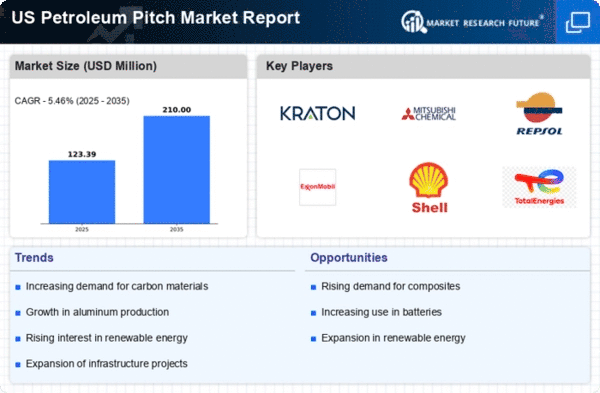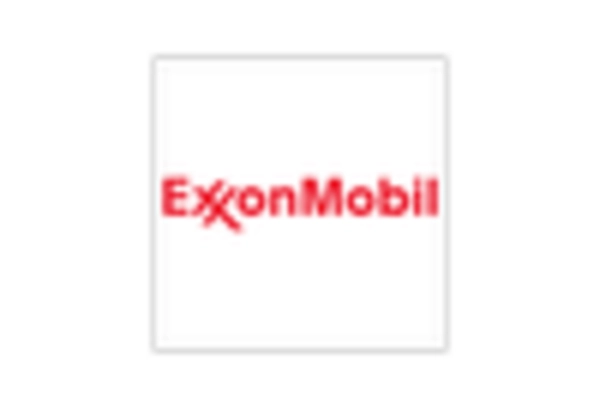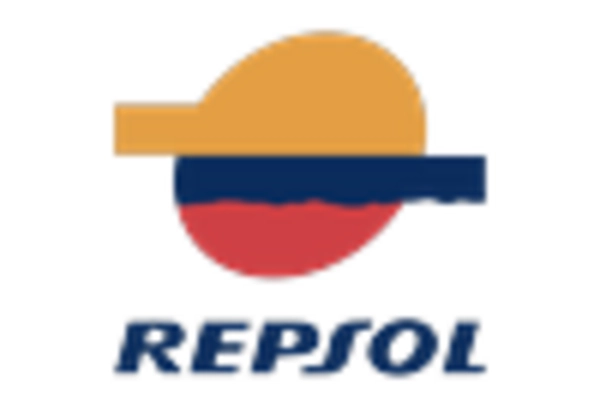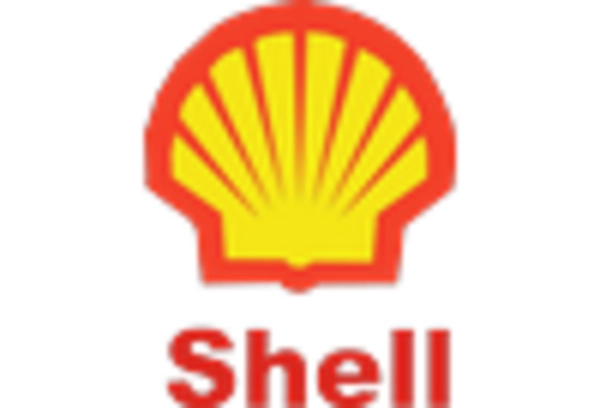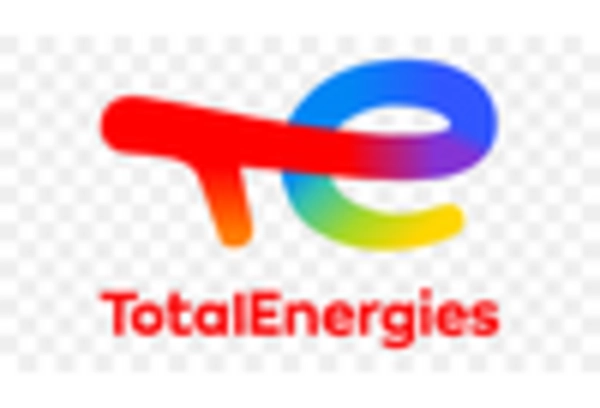the petroleum pitch market is characterized by a competitive landscape that is dynamic.. Key growth drivers include the increasing demand for high-performance materials in various applications, particularly in the automotive and aerospace sectors. Major players such as ExxonMobil Corporation (US), Kraton Corporation (US), and Mitsubishi Chemical Corporation (JP) are strategically positioned to leverage their extensive research and development capabilities. ExxonMobil Corporation (US) focuses on innovation in refining processes, while Kraton Corporation (US) emphasizes sustainable product development. Mitsubishi Chemical Corporation (JP) is actively pursuing partnerships to enhance its product offerings, collectively shaping a competitive environment that prioritizes technological advancement and sustainability.In terms of business tactics, companies are increasingly localizing manufacturing to reduce supply chain vulnerabilities and optimize logistics. The market structure appears moderately fragmented, with a mix of large multinational corporations and smaller specialized firms. This fragmentation allows for diverse competitive strategies, as key players like Repsol S.A. (ES) and TotalEnergies SE (FR) adopt tailored approaches to meet regional demands while maintaining global operational standards.
In October ExxonMobil Corporation (US) announced a significant investment in a new facility aimed at enhancing its production capabilities for petroleum pitch. This strategic move is expected to bolster its market share by increasing output efficiency and meeting the rising demand for high-quality pitch products. The investment underscores ExxonMobil's commitment to innovation and operational excellence, positioning the company favorably against its competitors.
In September Kraton Corporation (US) launched a new line of bio-based petroleum pitch products, reflecting its strategic focus on sustainability. This initiative not only aligns with global environmental trends but also caters to a growing customer base that prioritizes eco-friendly materials. The introduction of these products may enhance Kraton's competitive edge by appealing to environmentally conscious consumers and industries.
In August Mitsubishi Chemical Corporation (JP) entered into a strategic partnership with a leading automotive manufacturer to develop advanced pitch-based materials for electric vehicle batteries. This collaboration is indicative of Mitsubishi's proactive approach to innovation and market responsiveness, potentially positioning the company as a key player in the burgeoning electric vehicle sector.
As of November current competitive trends in the petroleum pitch market are increasingly defined by digitalization, sustainability, and the integration of artificial intelligence in production processes. Strategic alliances are becoming more prevalent, enabling companies to pool resources and expertise to drive innovation. The competitive differentiation is likely to evolve from traditional price-based competition towards a focus on technological advancements, supply chain reliability, and sustainable practices, suggesting a transformative shift in how companies position themselves in the market.


